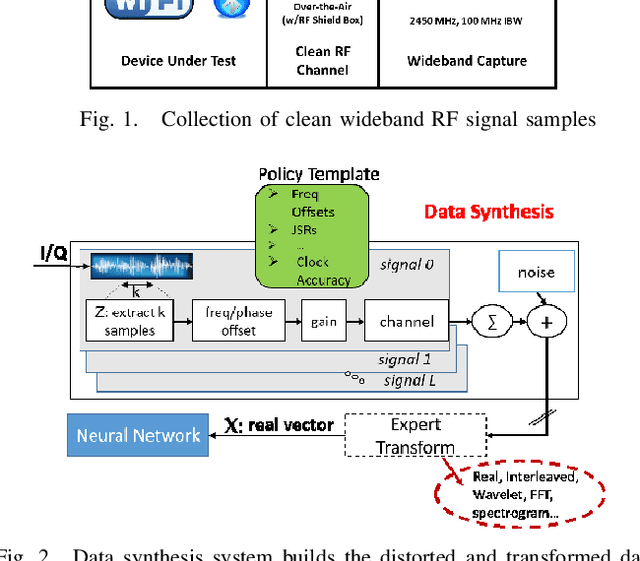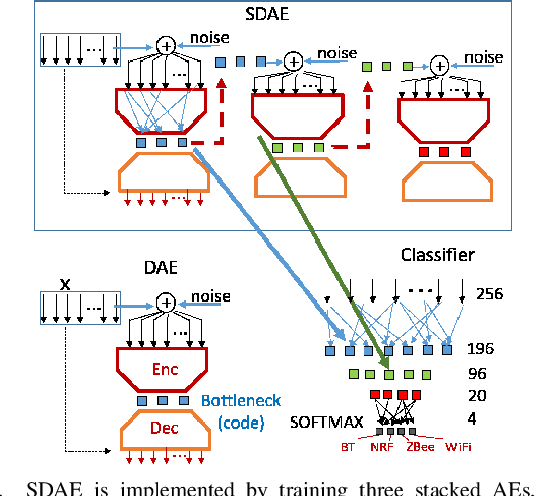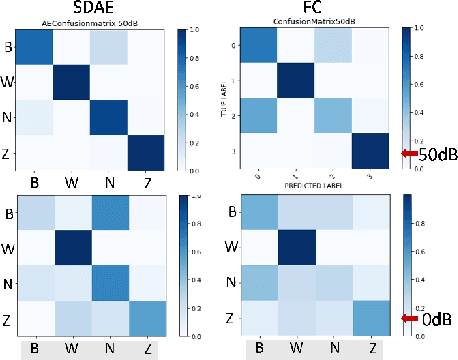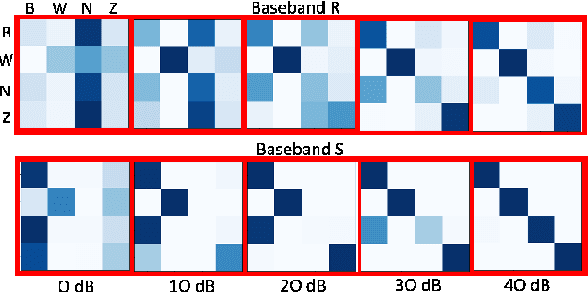AutoEncoders for Training Compact Deep Learning RF Classifiers for Wireless Protocols
Paper and Code
Apr 13, 2019



We show that compact fully connected (FC) deep learning networks trained to classify wireless protocols using a hierarchy of multiple denoising autoencoders (AEs) outperform reference FC networks trained in a typical way, i.e., with a stochastic gradient based optimization of a given FC architecture. Not only is the complexity of such FC network, measured in number of trainable parameters and scalar multiplications, much lower than the reference FC and residual models, its accuracy also outperforms both models for nearly all tested SNR values (0 dB to 50dB). Such AE-trained networks are suited for in-situ protocol inference performed by simple mobile devices based on noisy signal measurements. Training is based on the data transmitted by real devices, and collected in a controlled environment, and systematically augmented by a policy-based data synthesis process by adding to the signal any subset of impairments commonly seen in a wireless receiver.
 Add to Chrome
Add to Chrome Add to Firefox
Add to Firefox Add to Edge
Add to Edge